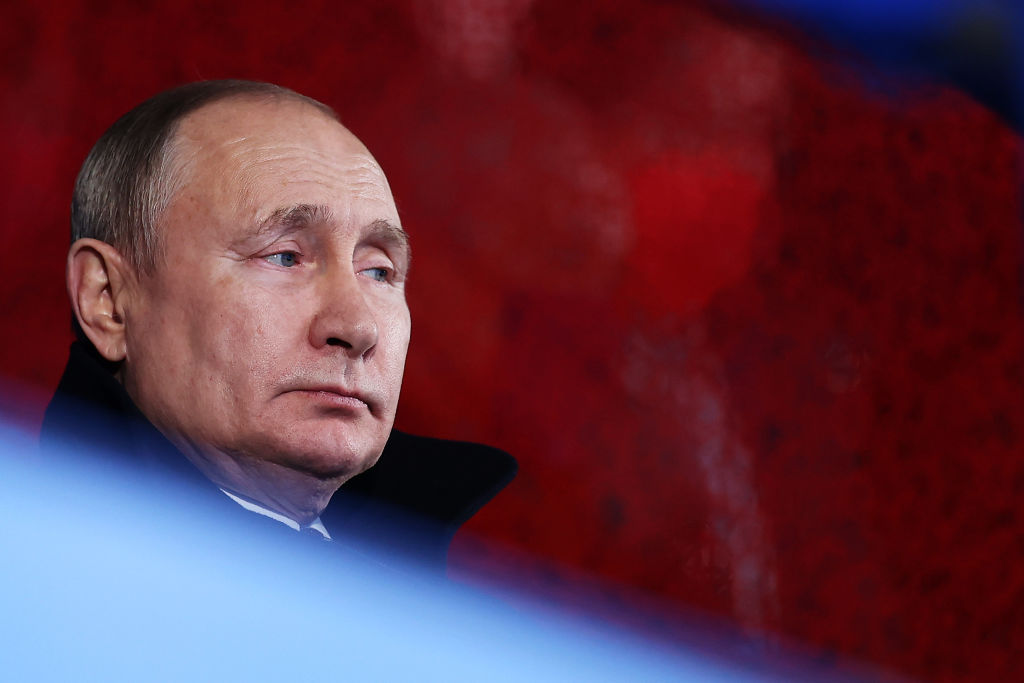Evidence suggests Russian invasion of Ukraine is still 'imminent,' U.S. says


A free daily email with the biggest news stories of the day – and the best features from TheWeek.com
You are now subscribed
Your newsletter sign-up was successful
In keeping with rhetoric from ealier in the week, the U.S. said Thursday that evidence from Ukraine's border shows Russia "moving towards an imminent invasion" — not withdrawing its troops, as the Kremlin has claimed, CNN reports.
"The evidence on the ground is that Russia is moving towards an imminent invasion," said Linda Thomas-Greenfield, U.S. Ambassador to the U.N., on Thursday, per CNN. Thomas-Greenfield said that U.S. Secretary of State Antony Blinken will, in a last minute change, address the U.S. Security Council considering "this is a crucial moment."
"Our goal is to convey the gravity of the situation," she added.
The Week
Escape your echo chamber. Get the facts behind the news, plus analysis from multiple perspectives.

Sign up for The Week's Free Newsletters
From our morning news briefing to a weekly Good News Newsletter, get the best of The Week delivered directly to your inbox.
From our morning news briefing to a weekly Good News Newsletter, get the best of The Week delivered directly to your inbox.
Defense Secretary Lloyd Austin also on Thursday said that, "even in the last couple of days," U.S. officials have seen Russia add to its military presence along the border — evidence once again at odds with Moscow's claims.
"I was a soldier myself not that long ago, and I know firsthand that you don't do these sort of things for no reason, and you certainly don't do them if you're getting ready to pack up and go home, so we and our allies will stay vigilant," Austin said Thursday.
Added NATO Secretary General Jens Stoltenberg: "We don't know what will happen, but what we do know is that Russia has amassed the biggest force we have seen for decades in and around Ukraine."
Also on Thursday, Russia expelled Deputy U.S. Ambassador Bartle Gorman for reasons not immediately known, Reuters reports.
A free daily email with the biggest news stories of the day – and the best features from TheWeek.com
Brigid Kennedy worked at The Week from 2021 to 2023 as a staff writer, junior editor and then story editor, with an interest in U.S. politics, the economy and the music industry.
-
 What to know before filing your own taxes for the first time
What to know before filing your own taxes for the first timethe explainer Tackle this financial milestone with confidence
-
 The biggest box office flops of the 21st century
The biggest box office flops of the 21st centuryin depth Unnecessary remakes and turgid, expensive CGI-fests highlight this list of these most notorious box-office losers
-
 What are the best investments for beginners?
What are the best investments for beginners?The Explainer Stocks and ETFs and bonds, oh my
-
 What is ‘Arctic Sentry’ and will it deter Russia and China?
What is ‘Arctic Sentry’ and will it deter Russia and China?Today’s Big Question Nato considers joint operation and intelligence sharing in Arctic region, in face of Trump’s threats to seize Greenland for ‘protection’
-
 What would a UK deployment to Ukraine look like?
What would a UK deployment to Ukraine look like?Today's Big Question Security agreement commits British and French forces in event of ceasefire
-
 Would Europe defend Greenland from US aggression?
Would Europe defend Greenland from US aggression?Today’s Big Question ‘Mildness’ of EU pushback against Trump provocation ‘illustrates the bind Europe finds itself in’
-
 Did Trump just end the US-Europe alliance?
Did Trump just end the US-Europe alliance?Today's Big Question New US national security policy drops ‘grenade’ on Europe and should serve as ‘the mother of all wake-up calls’
-
 Is conscription the answer to Europe’s security woes?
Is conscription the answer to Europe’s security woes?Today's Big Question How best to boost troop numbers to deal with Russian threat is ‘prompting fierce and soul-searching debates’
-
 Trump peace deal: an offer Zelenskyy can’t refuse?
Trump peace deal: an offer Zelenskyy can’t refuse?Today’s Big Question ‘Unpalatable’ US plan may strengthen embattled Ukrainian president at home
-
 Vladimir Putin’s ‘nuclear tsunami’ missile
Vladimir Putin’s ‘nuclear tsunami’ missileThe Explainer Russian president has boasted that there is no way to intercept the new weapon
-
 The Baltic ‘bog belt’ plan to protect Europe from Russia
The Baltic ‘bog belt’ plan to protect Europe from RussiaUnder the Radar Reviving lost wetland on Nato’s eastern flank would fuse ‘two European priorities that increasingly compete for attention and funding: defence and climate’
